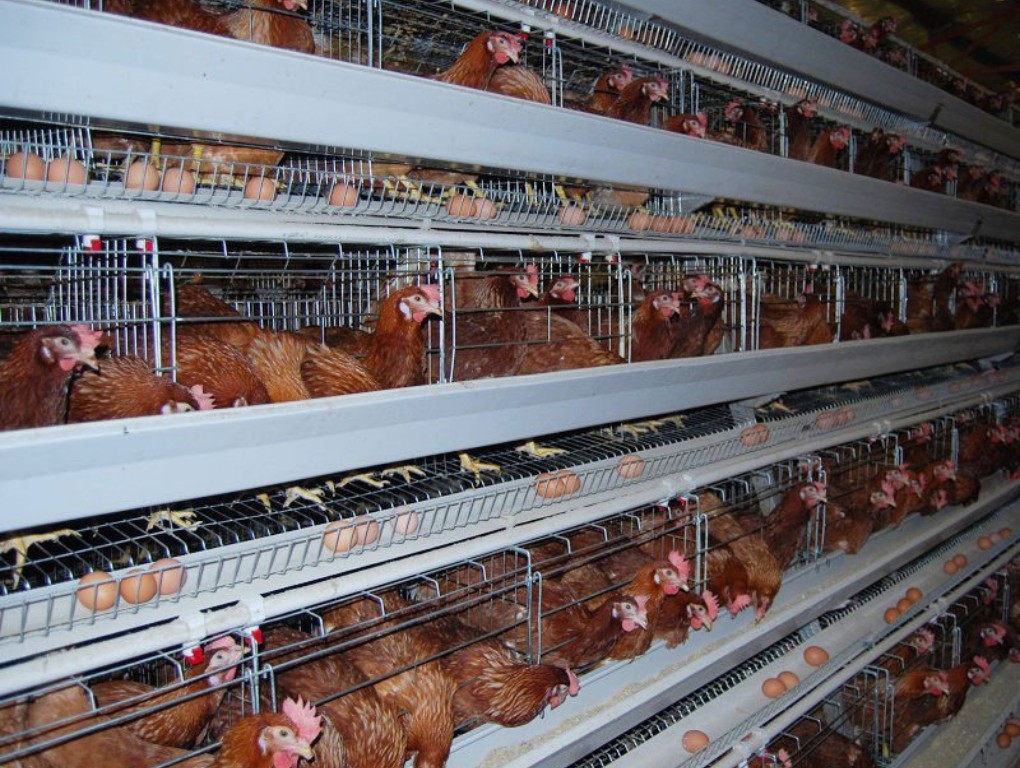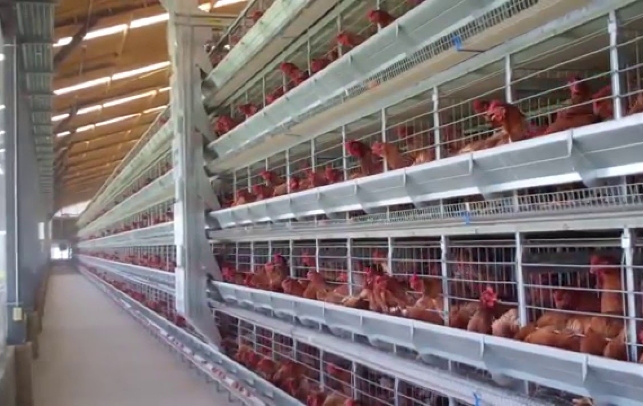How to make chicken farms increase egg production of laying hens
2024-05-09
If you are thinking about how to increase egg production in commercial laying hens, there are a few things you must keep in mind. You need to have a clear understanding of your flock’s production capabilities. You must understand how to measure the number of eggs your flock can produce and the factors that affect egg production rate. You have to identify the hens, which ones are laying hens and which ones are not. Once you have all the knowledge, make sure you are ready to start a successful poultry farming business.
Egg production expected
Laying hens lay only one egg a day, and sometimes they may not lay any eggs at all. It all depends on the hen’s reproductive system. The hen’s body begins to form a new egg after laying the previous one. It takes approximately 26 hours for an egg to fully form, so mathematically the hen will lay an egg two hours later each day, and the hen’s reproductive system is also sensitive to light. Therefore, if a hen lays an egg too late one day, it will be skipped the next day.
A group of hens will not start laying eggs on the same day. They also don’t lay eggs within the same time frame. The time a hen lays eggs varies from hen to hen. Egg production decreases year by year, and egg size increases year by year. The number of eggs a hen lays per year and the number of years a hen lays eggs depend on the following factors:
Management of hens before laying
Variety
Lighting management
space allowance
Nutrition
Factors affecting poultry egg production
There are many factors that directly or indirectly affect egg production rate. To understand these factors we need to study the history of hens. Factors such as aging, feed consumption, water, light intensity and duration, and disease affect egg production.
Aging hens: Aging is a big problem in egg production. A hen can live for many years, and during those years it continues to lay eggs. But suddenly after a period of time, such as two or three years, the egg production rate will drop significantly. It really depends on the quality of the hens you raise. Good laying hens lay eggs continuously for about 50 to 60 weeks and then take a break. This period is called molting. Poorer and older laying hens moult more frequently and produce eggs less consistently.
Improper nutrition: Chickens need a balanced diet with adequate protein and calcium to maintain maximum egg production over a certain period of time. Improper nutrition can cause hens to stop laying eggs. Imbalances in protein, energy and calcium levels can reduce egg production. That’s why it’s so important to provide a consistent, balanced diet for a consistent supply of eggs.
Imbalanced food can lead to many problems, such as fallopian tube prolapse. It mainly occurs when the birds are too fat or the eggs are too large. Prolapse can cause permanent damage to the hen.

How to manage laying hens?
There are two methods of raising and managing laying hens, namely flood production and caged laying hen production. By using any of these methods, you can keep your hens productive year-round.
You should keep your chicken farm away from other chicken farms. A good drainage system is a must for chicken farms. In order to provide sufficient light intensity, adequate lighting fixtures are required. An adequate supply of fresh clean water is also a must.
The poultry house must have adequate sunlight and ventilation. Removable doors or curtains can be used so that openings can be easily opened when the climate changes. You’ll need to ventilate from all directions in the summer and close openings in the winter to keep your home comfortable and clean.
Laying hens are placed in poultry cages and each cage is provided with adequate food and water. Each cage can accommodate up to 4 or 5 hens. Our poultry cages come complete with accessories: nipple drinking systems, medication tanks, adjustable leveling feet, water pipes, pipe connections and feed troughs, etc. These cages provide a great help in increasing the egg production of chickens.
Floor production systems are suitable for egg or broiler poultry. In commercial birds, this method is used to produce fertilized eggs. The birds are kept on covered floors so that they can produce flooring. But we couldn’t make full use of the coop space this way. And collecting eggs and keeping them clean isn’t easy.

How to identify the quality of laying hens?
To determine if a hen is a laying hen, first you must understand the type of hen you are using, it is important to identify the hen. In many breeds, egg-laying hens have large red combs and wattles. In other types of breeds, laying hens have normal combs and wattles that fade after the laying period. Hens like Plymouth Rock Chickens and Rhode Island Red Chickens have a yellow pigment on their skin, which is a good indicator that the hen is currently in her laying cycle. Hens lose pigment in a specific sequence. First, the color starts to fade from the vents, then it starts to fade on the face, and finally the feet.
Yet another way to identify a hen that is laying is by assessing fat levels in the abdomen and abdominal volume, which can be measured by measuring the distance between the sternum or pubic bones, or by measuring the distance between the pubic bones. Pubic bone and keel tip.
Why does a hen stop laying eggs?
There are many reasons why hens may not lay eggs. If your hens have stopped laying eggs, you can ask the following questions to find out why.
Have your hens been laying eggs for 10 months or more? If the answer is yes, remember that your hens are at the end of their egg-laying cycle. It will now stop laying eggs and molt. It will rest for a while and then start laying eggs again. But if your answer is no, then investigate, there are other reasons for insufficient egg production.
Do you provide enough clean water? If hens can’t drink water, they won’t eat. Therefore, you must ensure that your hens have a good drinking system. You must keep your watering system functioning properly. This can be a challenging task for you during the winter months when the water freezes. You can purchase a water fountain with a heater. It will prevent water from freezing. Problems can also arise in the summer. If the temperature is too high, the hens will stop drinking water.
Are the hens eating the right feed? If your hens are eating the wrong food and not getting enough feed. It will molt repeatedly and reduce egg production.
Do you provide enough light? Light has a direct impact on egg production. If adequate light is not provided, hens will be less productive. Therefore, sufficient light must be provided to increase egg production.
Do your hens have a parasitic infection? Both internal and external parasites can affect productivity. So you have to be careful.


 English
English








